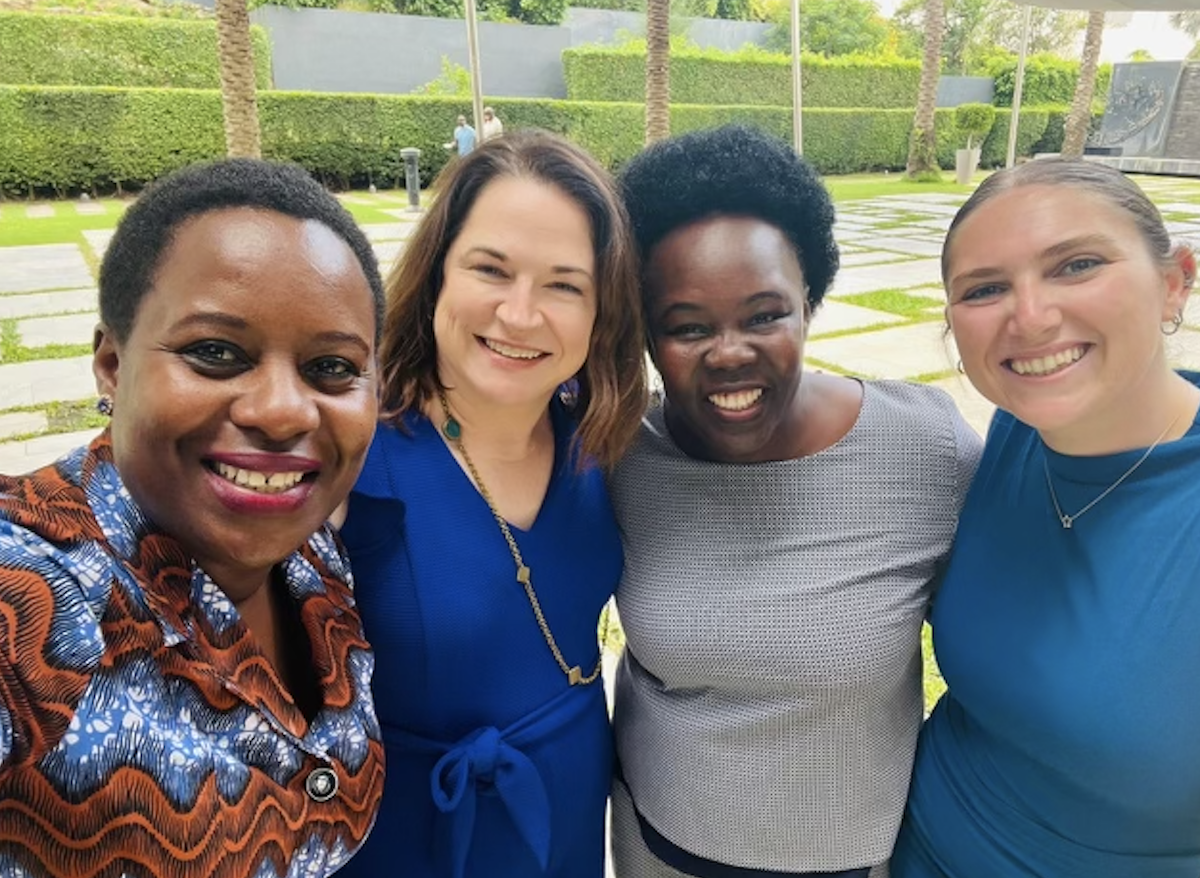Navigating Digital Rights and Civic Space in Africa: FIFAfrica 2024

As Africa undergoes a rapid digital transformation, the question of how to best safeguard digital rights while maintaining a free and open civic space has become increasingly urgent. Across the continent, stakeholders from all sectors continue to push back against state-imposed restrictions on online platforms and internet access, online harassment, and other methods for reducing the digital rights of citizens. This fight to bolster digital rights brought two members of the DemTech team to Senegal to attend the Forum on Internet Freedom in Africa (FIFAfrica) this past September.
FIFAfrica is an annual gathering focusing on issues related to digital rights, online freedom, and internet governance across the African continent. The 2024 edition took place in Dakar, Senegal, and brought together a diverse group of stakeholders, including policymakers, CSOs, activists journalists, tech industry representatives, and advocates, to discuss pressing challenges and opportunities in Africa’s rapidly evolving digital landscape. DemTech played a significant role in advancing discussions on internet governance, digital rights, collaboration between policymakers and civil society, and combatting tech facilitated gender-based violence (TFGBV) through a series of workshops, panels, and networking sessions.
During a pre-conference workshop co-organized by Small Media, CIPESA, and APNIG, DemTech spent two days with approximately 20 parliamentarians (MPs) from across the continent who all had an interest in digital rights and internet governance. The first session DemTech facilitated focused on the findings of the 2024 Open Internet Leaders’ final project which identified key challenges and opportunities for collaboration between civil society and policymakers around digital rights. The parliamentarians proposed solutions to common challenges addressed in their findings such as high turnover rates, knowledge gaps, and challenges implementing, emphasizing the need for CSOs to assist not only in identifying legislative gaps but also in drafting potential frameworks that could fill those gaps. This practical approach was a core recommendation that had initially come from the Open Internet Leaders and was reaffirmed by the policymakers during the session.
DemTech also led a session that introduced MPs to internet governance structures and the significance of the 2025 international conferences, emphasizing the multistakeholder model. By the end of the workshop, MPs expressed a greater appreciation for their role in advocating for inclusive internet governance at both regional and global levels. They were eager to return to their countries with a deeper understanding of the topic and look at what role they could play in increasing oversight and good governance of the internet.
DemTech was also a part of two panels around the same topics discussed with the parliamentarians. The first, “Strengthening Collaboration with African Policymakers”, brought together influential voices from across the continent to discuss how parliamentarians, civil society, the private sector, and independent media can collaborate on digital rights issues. The panel featured Clare Muhindo, a current Open Internet Leader from Uganda, and Nashilongo Gervasius, a past Leader from Namibia, alongside two African parliamentarians. The session highlighted similar opportunities for collaboration as discussed in the workshop with APNIG; engaging parliamentarians in large-format consultancies to ensure their understanding of the nuances of digital rights, leveraging parliamentary networks (such as APNIG) to facilitate dialogue and cross-regional action, and continuing to encourage civil society to assist in drafting legislation or amendments that address gaps in current policies. The parliamentarians echoed the need for civil society to play a proactive role, particularly in drafting legislation and participating in open consultancy sessions to align their advocacy with parliamentarians' existing knowledge and legislative needs. The second session once again provided an overview of why the upcoming year, particular 2025, is critical for the future of the internet and internet governance, especially in terms of defending the multistakeholder model. Participants were introduced to key internet governance structures and engaged in discussions about how they could influence future international discussions, such as those happening at the International Telecommunications Union (ITU). Attendees shared their experiences from previous Internet Governance Forums (IGFs) and explored ways to advocate more effectively in their respective countries.
DemTech was able to include local parliamentarians and other political women in the announcement of a new rapid response tool to assist political women that will launch in early 2025. . With a conversation led by Moira, alongside representatives from Freedom House, pirth.org, and Pollicy, an African-based feminist data collective, those attending both in person and online were introduced to the new survivor-centered global mechanism NDI is rolling out. Women in politics and public life facing tech facilitated gender-based violence (TFGBV) will be able to seek out and gain immediate practical assistance and seek financial assistance when needed through a digital platform. Additional NDI will be establishing a steering committee of TFGBV survivors from around the world and experts on technology and TFGBV to guide NDI in developing the mechanism and share it with their networks.
As digital rights continue to evolve, gatherings like FIFAfrica are essential to providing collaborative spaces for policymakers and digital rights advocates to help unify efforts to keep the internet a space where freedom of expression, privacy, and other human rights are protected.
